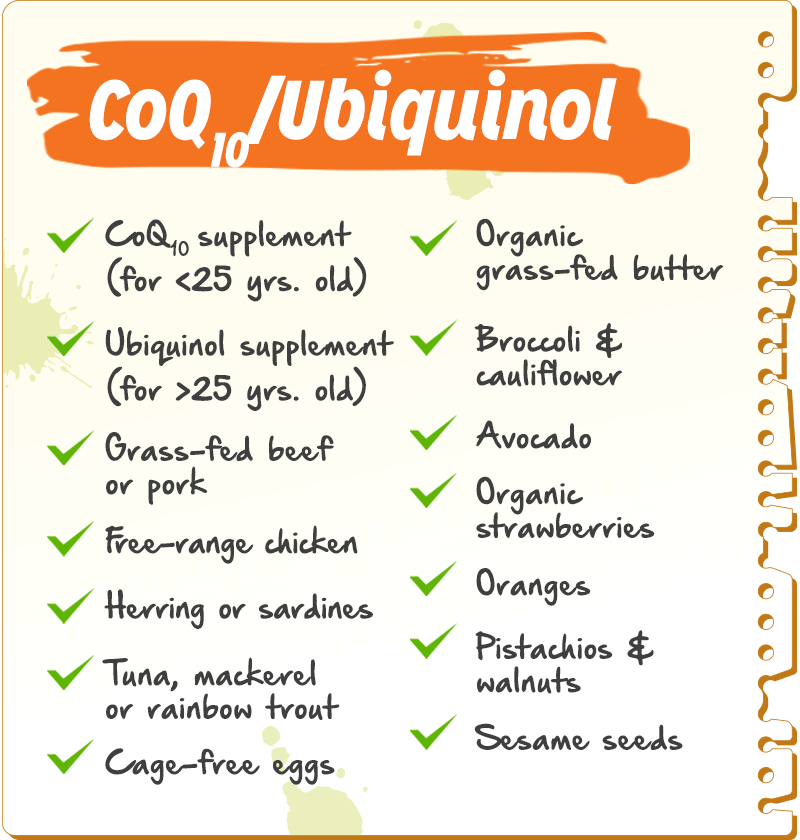CoQ10/Ubiquinol
Coenzyme Q10 (CoQ10) is a fat-soluble, vitamin-like substance necessary for energy production in virtually every cell in the human body. An antioxidant, it also helps protect against cellular damage from free radicals. The body naturally produces CoQ10 in its oxidized form (ubiquinone) and its reduced form (ubiquinol). When your body levels of CoQ10/ubiquinol decline below a certain level, so does your health.
Fast Fact: CoQ10/ubiquinol production peaks at about age 20, declines thereafter, and drops by 65% by age 80.
Why You Need It: An essential component of mitochondria, the powerhouses of our cells, CoQ10 acts like a spark plug, jump starting production of the energy (ATP) used to fuel a wide range of vital biological processes. CoQ10 is particularly important in the parts of the body that require the greatest amounts of energy, such as the heart, brain, muscles and lungs. While the body produces CoQ10, sometimes it doesn’t make enough. CoQ10 deficiencies can result from a poor diet or a genetic defect, or due to increased tissue needs due to disease or as a side effect of certain drugs, like statins.
In addition to antioxidant benefits, research shows CoQ10/ubiquinol’s value in cardiovascular diseases including angina, cardiac arrest and stroke recovery, cardiomyopathy, congestive heart failure, high cholesterol treated by certain drugs, high blood pressure, and protection during cardiac surgery. It also plays a role in the treatment of cancer (boosting immune function and offsetting the effects of chemotherapy), diabetes, and male infertility, as well as in muscle function, exercise tolerance, and periodontal disease (gingivitis and dry mouth). As the link between mitochondrial dysfunction and the aging process becomes more clear, CoQ10/ubiquinol’s therapeutic role in age-related diseases such as macular degeneration is being studied. Ubiquinol is often recommended for people with Parkinson’s and dementia.

× ![]()
Best Food Sources: Achieving optimal levels of CoQ10 almost always requires supplementation. Studies do show that a high intake of plant foods may help preserve existing levels of CoQ10. Foods highest in CoQ10 include pork, grass-fed beef, free-range chicken, herring/sardines, tuna, mackerel, rainbow trout, butter, cage-free eggs (yolk), broccoli, cauliflower, avocado, organic strawberries, oranges, olive oil, peanuts, pistachios, walnuts, and sesame seeds.
Supplement Suggestions: Young people can use CoQ10 supplements quite well. Older people (25 and up) should take the more bioavailable ubiquinol. Because CoQ10/ubiquinol levels decline with age, people over age 50 may need more. You can improve absorption of your CoQ10/ubiquinol supplement by taking it with a small amount of healthy fat such as avocado, olive oil, or coconut oil.
Need to Know: Heart tissue biopsies in 50-75% of study patients with various cardiovascular diseases had a CoQ10 deficiency.
Check out our food and supplement shopping tips.